The ban was passed.
Dog meat will no longer be allowed to be sold and consumed in South Korea, marking a decades-long campaign against a controversial culinary practice in the East Asian country.
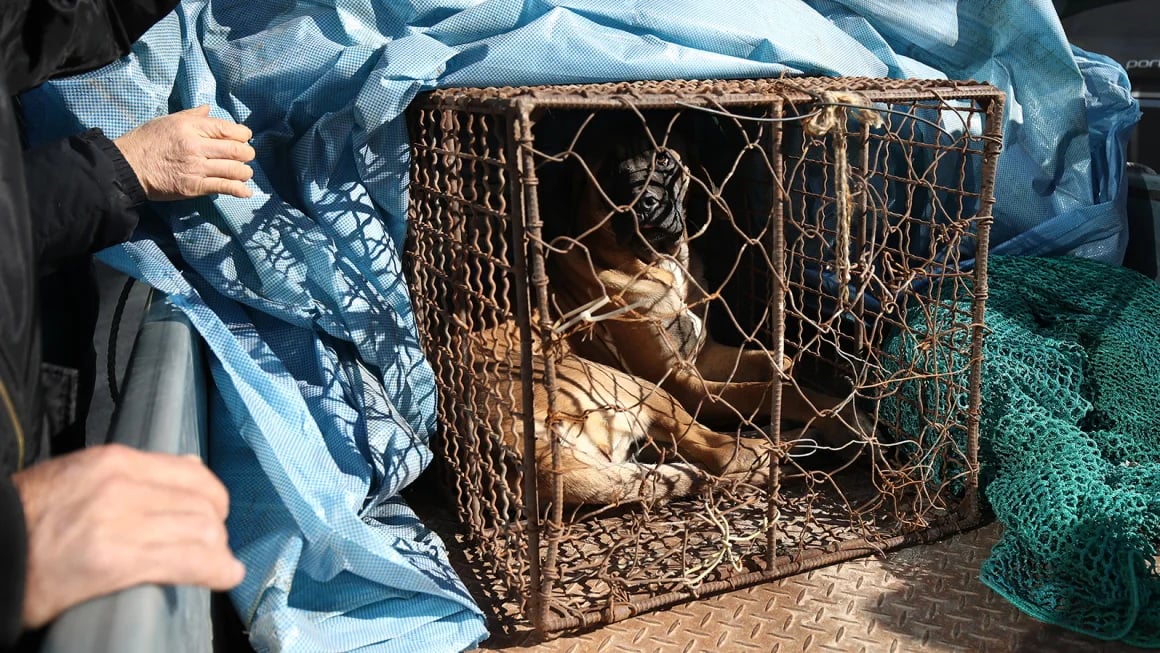
Under the dog meat ban that will take effect in 2027 in South Korea, violators will face up to three years in prison or a fine of up to 30 million won (about 23,000 USD) - Photo: CNN
South Korean lawmakers passed a bill Tuesday with no opposition that would phase out the farming, slaughtering and sale of dog meat by 2027. Violators would face up to three years in prison or a fine of up to 30 million won (about $23,000). Anyone who raises dogs for food or knowingly buys, transports, stores or sells dog food would also face lighter penalties and jail time.
Dog meat farm owners, restaurants and other dog traders will be given a three-year grace period to close or change their operations. Local authorities will be required to help those business owners “stably” transition to other businesses.
The three-year grace period for the ban was imposed after a backlash from South Korea’s dog meat industry, which said the ban threatened their economic livelihoods and violated their basic rights. Dozens of dog meat farmers have clashed with law enforcement in recent months during protests. Some have threatened to release unsold dogs in public areas, including near the South Korean presidential complex.
Efforts to protect South Korea's global image
South Korea has been on a global soft power roll for years, with its flashy pop stars, cutting-edge technology and trendy cuisine. But for decades, for many South Koreans, dog meat consumption has been a social sore—and an opportunity for outside criticism—that has regularly drawn international scrutiny during the country’s most high-profile moments since the 1988 Seoul Summer Olympics.
According to a recent survey conducted by an animal rights group last month, only about 5% of South Koreans said they had eaten dog meat in the past year. More than 93% also had no plans to consume dog meat in the future. Opponents cited emotional reactions, animal cruelty, and unsanitary conditions as the top reasons for turning away from dog meat.
In another survey, in 2022 by Gallup Korea, 64% of respondents opposed eating dog meat – a notable increase from a similar survey in 2015. The number of respondents who had eaten dog meat in the past year also dropped, from 27% in 2015, to just 8% in 2022.
For centuries, dog meat has been a popular dish in Korean cuisine, with locals believing that eating dog meat improves stamina and cools the body – making it a prized delicacy during the summer months.
In neighboring North Korea, a dog meat soup competition is also held every July. A local dog meat dish won a cultural heritage award in 2022. Dog meat consumption remains widespread elsewhere in Asia, from Vietnam to Indonesia to parts of China.
According to Humane Society International (HIS), an advocacy group that opposes the practice, India, the Philippines, Thailand and other parts of Asia have banned the eating of dog meat. About 30 million dogs are killed annually in the region for their meat, the group says.
End the ambiguity
The South Korean government estimates that about 520,000 dogs will be raised for human consumption by 2022, down 35 percent from five years earlier. The number of dog meat restaurants has dropped about 75 percent since the late 1990s, to about 1,700 nationwide, according to government data.
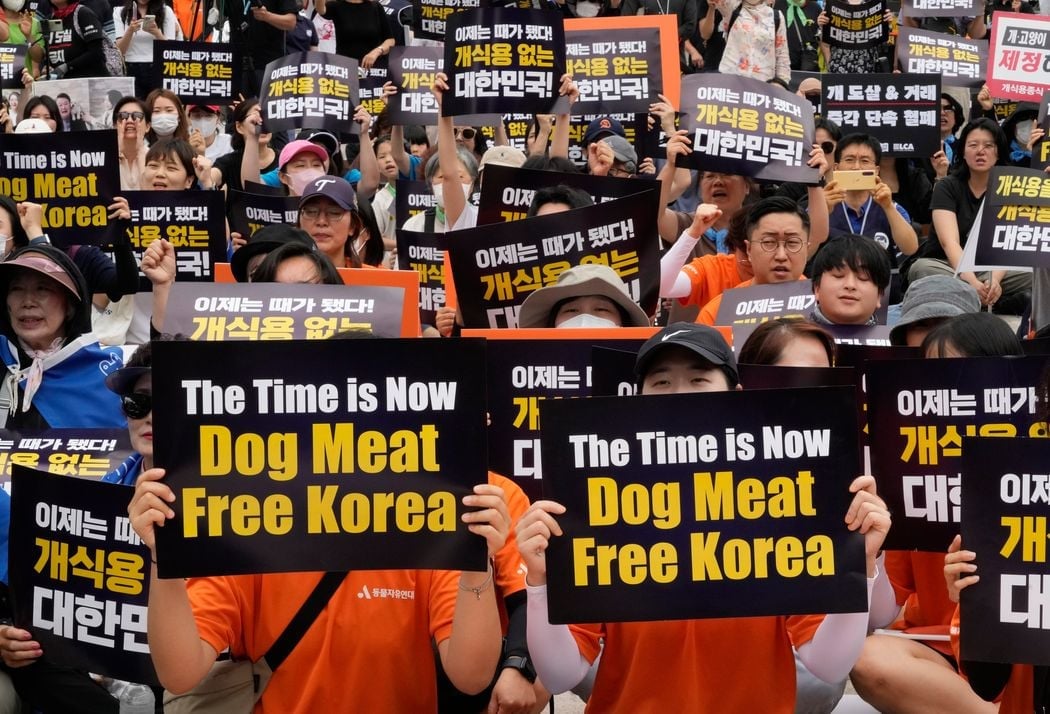
Animal rights activists at a protest against dog meat consumption in Seoul - Photo: AP
The ban on dog meat consumption remains a delicate issue in South Korea – officials sometimes deny it exists. Dogs are not considered livestock, making it difficult to monitor. Large dog meat markets have been closed in recent years. But despite some official crackdowns, such as in Seoul, enforcement has been lax for years.
The law banning dog meat, passed Tuesday, will remove any ambiguity. The process will gain new momentum in 2022, when President Yoon Suk-yeol takes office. His wife, Kim Keon-hee, has made a dog meat ban a major goal as South Korea’s first lady. When Yoon’s term began, they owned four dogs and three cats. Kim said she couldn’t sleep for days after seeing images of dog farms.
Ahead of Tuesday’s vote, the Korea Dog Meat Association, which has about 1,000 members, called any ban evil and hung signs that read: “Freedom to eat what you want trumps everything else!” The group argued that the dog meat ban was being pushed by animal rights groups looking to attract attention and generate donations.
The association estimates that about 10 million South Koreans eat dog meat – about a fifth of the country’s population – and the industry employs about 1 million people. It is therefore seeking compensation of about $1,500 per dog.
The bill, which now goes to President Yoon Suk-yeol for final approval, was proposed by both Yoon’s ruling party and South Korea’s main opposition party. And despite fierce opposition from dog meat traders’ associations, Lee Sang-kyung, director of the dog meat ban campaign at HSI Korea, said the bill’s grace period and relief measures would help dog farmers weather the difficult transition.
“Based on our experience talking to workers in the industry at HSI, we know that the majority of dog meat farmers and slaughterhouses want to leave the industry but don’t know how to do so. Now with the bill, the compensation package (and) financial support from the government, I think this is the right time for them to do so,” said Lee.
Quang Anh
Source







![[Photo] Closing of the 11th Conference of the 13th Central Committee of the Communist Party of Vietnam](https://vstatic.vietnam.vn/vietnam/resource/IMAGE/2025/4/12/114b57fe6e9b4814a5ddfacf6dfe5b7f)
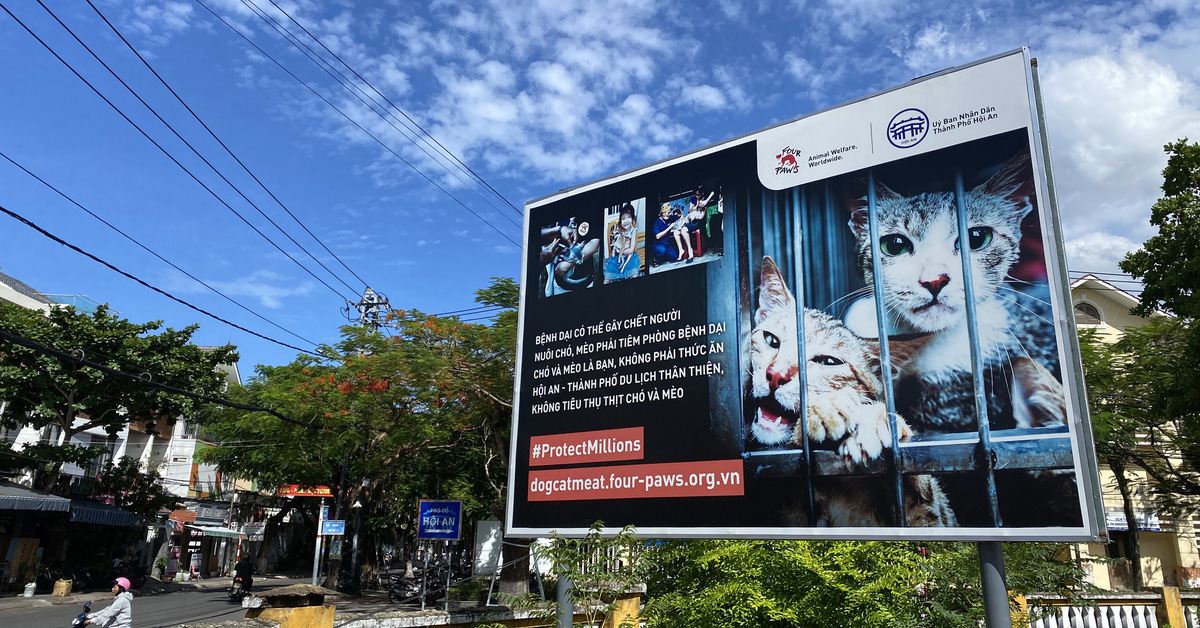

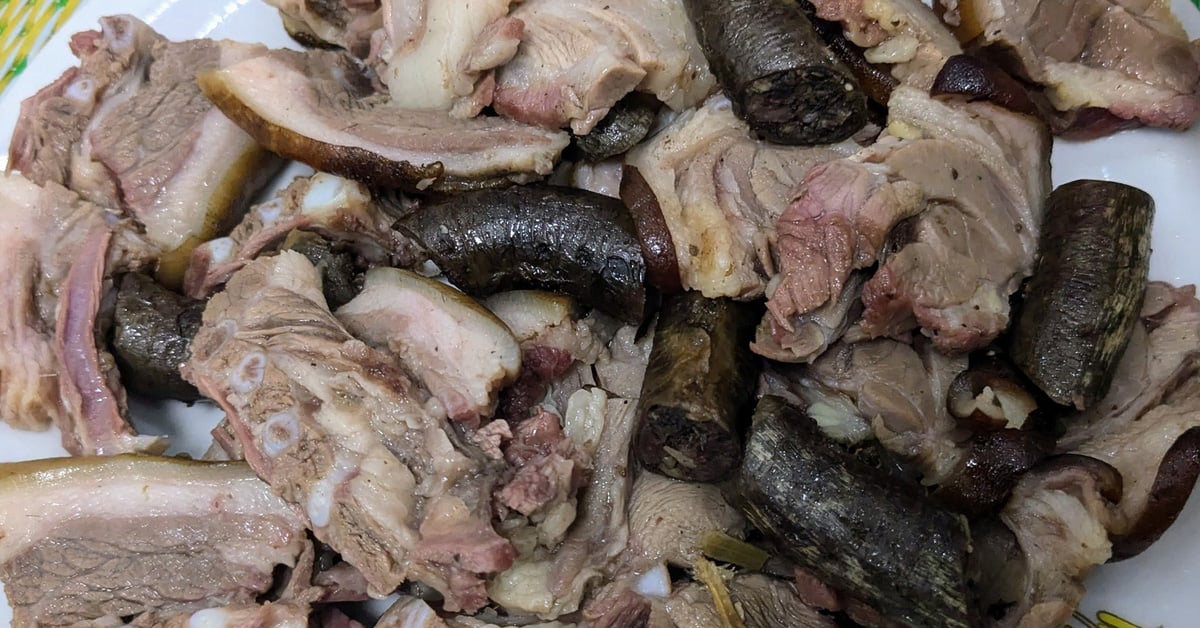
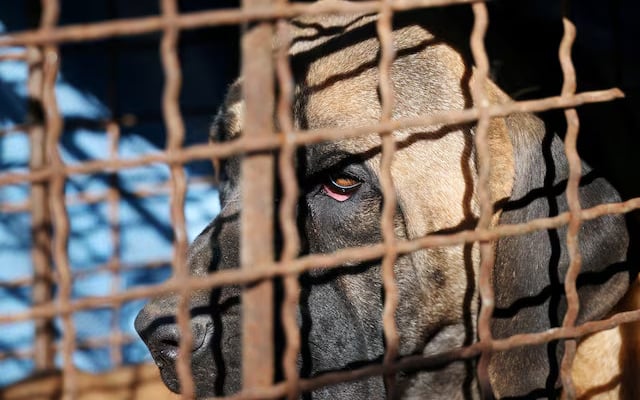
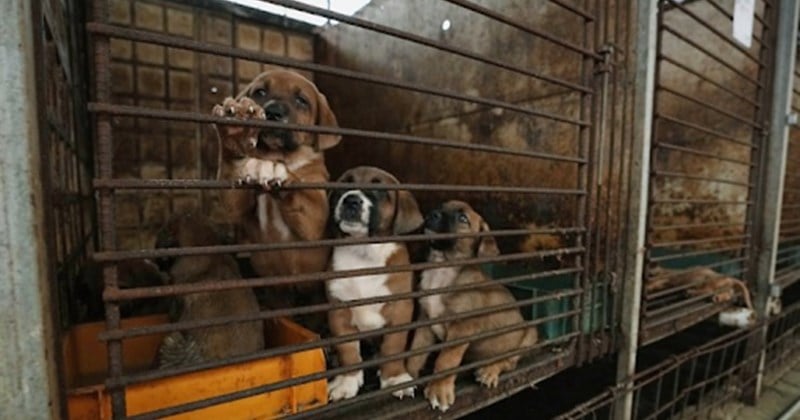

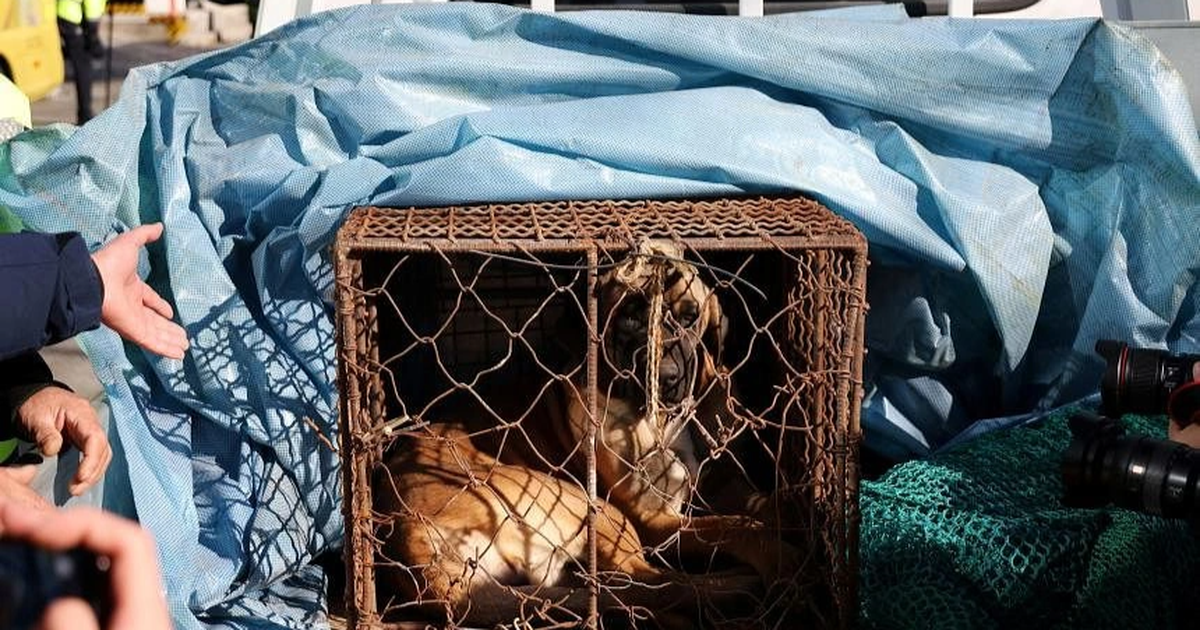


















![[Photo] Overcoming all difficulties, speeding up construction progress of Hoa Binh Hydropower Plant Expansion Project](https://vstatic.vietnam.vn/vietnam/resource/IMAGE/2025/4/12/bff04b551e98484c84d74c8faa3526e0)















































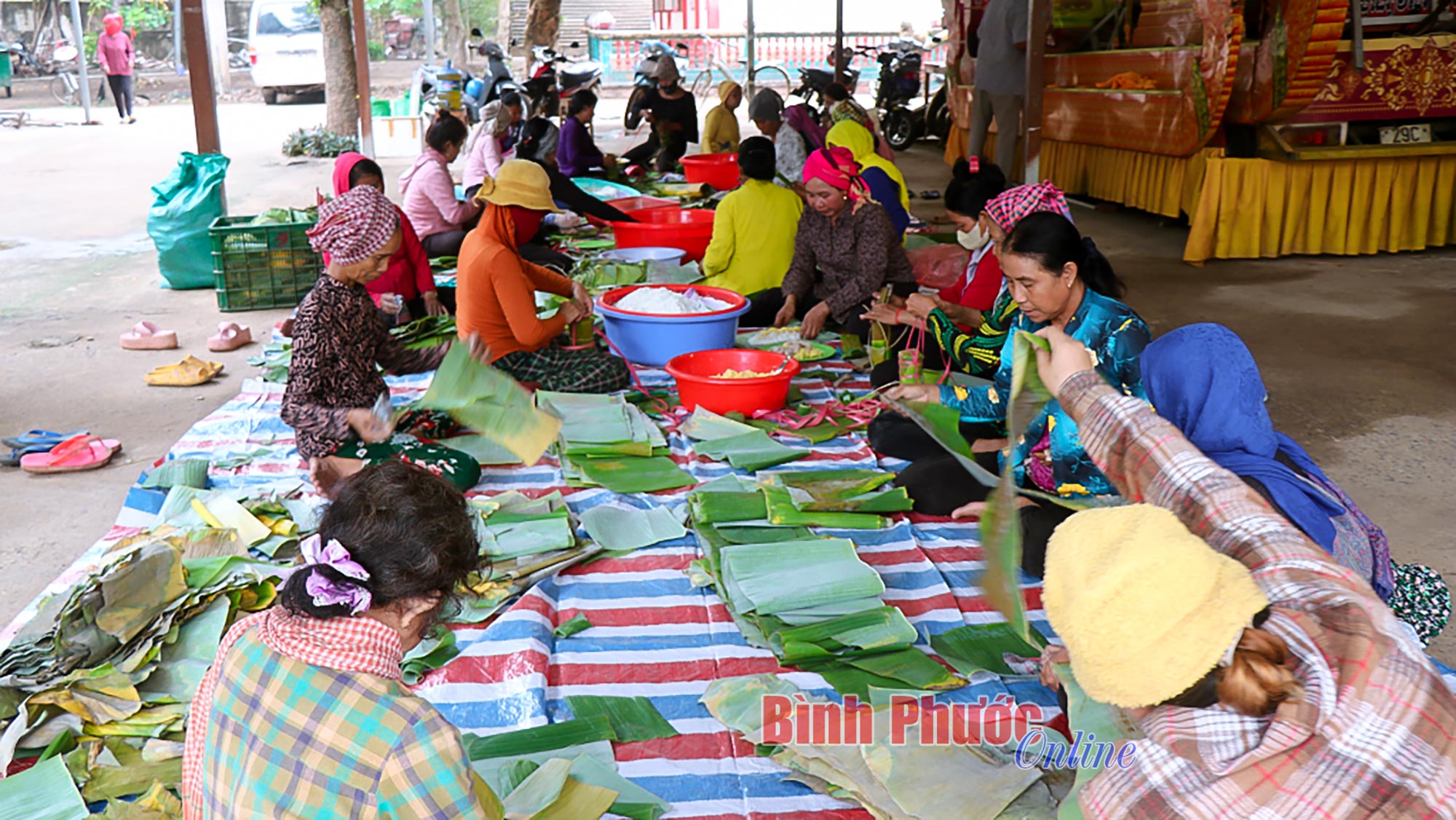














Comment (0)